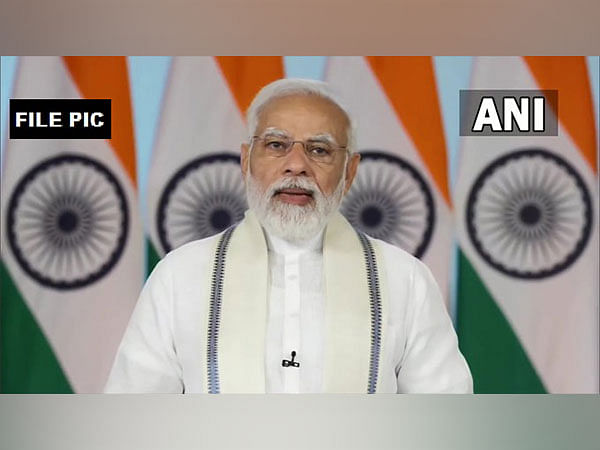


Prime Minister Modi has congratulated the newly-designated classical languages, including Marathi, on social media platform X. The recent approval for classical status to Marathi, Bengali, Assamese, Pali, and Prakrit comes just ahead of the scheduled Assembly elections in Maharashtra, making it a significant political move. While the recognition honors the timeless influence of these languages on India's culture and history, PM Modi hopes that it will inspire more people to learn and preserve them.
Union Cabinet Approves Classical Language Status for Five Languages
On December 1, 2022, the Union Cabinet approved the proposal to grant classical language status to five Indian languages: Marathi, Bengali, Assamese, Pali, and Prakrit. This decision is significant as it recognizes the rich cultural and historical significance of these languages, and is expected to encourage their preservation and promotion.
Background:
The classical language status is granted to languages that have a long literary tradition and a significant body of work that predates the 14th century CE. The criteria also include grammatical sophistication, a substantial corpus of ancient texts, and a long tradition of scholarly research.
Prior to this decision, only Sanskrit, Tamil, Telugu, Kannada, Malayalam, and Odia had been granted classical language status in India.
Political Significance:
The approval of classical language status for Marathi comes just ahead of the scheduled Assembly elections in the state of Maharashtra, where Marathi is the official language. This move has been seen as a significant political decision, with many analysts speculating that it could sway votes in favor of the ruling Bharatiya Janata Party (BJP).
Cultural Significance:
Beyond the political implications, the classical language status is a recognition of the immense cultural and historical value of these languages. Marathi, for example, is a rich language with a rich literary tradition dating back centuries, and has produced notable literary figures such as Dnyaneshwar and Tukaram.
Prime Minister's Reaction:
Prime Minister Narendra Modi took to social media to congratulate the newly-designated classical languages, stating that this decision would inspire more people to learn and preserve these rich languages.
Top 5 FAQs Related to Classical Language Status:
1. What are the criteria for classical language status?
2. Which languages have been granted classical language status in India?
3. What are the benefits of classical language status?
4. How does the political climate influence the granting of classical language status?
5. What is the significance of Marathi receiving classical language status?

On the 75th death anniversary of Sardar Vallabhbhai Patel, Prime Minister Modi paid tribute to the "Iron Man" of India, highlighting his immense contribution in unifying the country after Independence. Known as India's first Deputy Prime Minister and Home Minister, Patel was a pivotal figure in the integration of over 560 princely states to form the Republic of India. His legacy as a leader and visionary continues to inspire generations in nation-building and governance.

Maurya pays tribute to Sardar Patel on his 150th birth anniversary, hailing him as a symbol of India’s unity and strength. He praises the Prime Minister’s efforts in realizing Patel’s dream of a united and self-reliant India. The Deputy Chief Minister also emphasizes the importance of the Statue of Unity in showcasing India’s cultural pride and resolve. He urges citizens to visit the monument, which stands as a testament to Patel’s legacy of a united and strong India.

Despite facing setbacks such as rape charges against one of its MLA and increased welfare pension by the ruling party, the United Democratic Front (UDF) emerges victorious in the local body elections in Kerala. The results show a strong anti-incumbency wave and the UDF manages to win key constituencies like Kochi, Kannur, Kollam, and Thrissur in a surprising turn of events. This has boosted the confidence of the Congress, with senior leaders like Rahul Gandhi and Ramesh Chennithala terming it as a clear sign of their growing popularity in the state.

Amid the recent terrorist attack targeting the Jewish community in Sydney, Australia, US President Donald Trump offered words of reassurance and encouraged prideful celebration for those observing Hanukkah. He expressed his disdain for the attack and praised the bravery of the man who tackled one of the attackers. Trump also reminded everyone to come together to celebrate the holiday and condemn such heinous acts of hate.

Nitin Nabin, BJP's newly appointed National Working President, thanked Prime Minister Narendra Modi and the party's senior leaders for entrusting him with the top organizational responsibility. He also credited the hardworking party workers for the success of BJP across the nation. Nabin hit out at the Congress for using abusive language against PM Modi, stating that it only strengthens him. He also praised the party workers for their dedication and hard work in maintaining BJP's winning streak in his constituency as well as West Patna.

Maharashtra Chief Minister Devendra Fadnavis has dismissed criticism from the Opposition regarding the law and order situation in the state, citing a high conviction rate of 96.24%. He also highlighted the improved response time for the 'Dial 112' service and a decrease in crime in Pune. Additionally, Fadnavis addressed concerns over crimes against women and children and stated that the registration rate for complaints is over 99%.

The BJP's Parliamentary Board, on Sunday, appointed five-term MLA and Bihar Cabinet Minister Nitin Nabin as the party's national working president. This sets him up as a potential successor to current national president J P Nadda in January, marking a shift in the party's leadership towards a younger generation. With crucial Assembly elections approaching, Nabin's election as party president could have significant implications on the party's future direction, and his appointment has received praise from top leaders like Prime Minister Narendra Modi and Home Minister Amit Shah.

Amid the chaos and tragedy of the Sydney Bondi Beach attack, a bystander has emerged as a hero after bravely disarming a gunman. Ahmed al Ahmed, a local fruit shop owner, charged at one of the gunmen and successfully took away their weapon, risking his own life in the process. He has since been identified as a father of two and is receiving treatment in the hospital, while being praised globally for his heroic actions.

The Bharatiya Janata Party has shocked many with its decision to elevate Bihar minister Nitin Nabin as its national working president, making him the youngest person to hold the position. This move marks a significant leadership reset within the party and is likely to have a domino effect on the internal hierarchy. Along with the appointment of an OBC leader as BJP's UP unit president, this strategic shakeup suggests that the party is preparing for the next electoral cycle and setting the stage for a post-Modi era.

In the aftermath of the National Democratic Alliance's landslide victory in the Bihar Assembly elections, the Bharatiya Janata Party has selected Nitin Nabin, a prominent social worker and committed political activist, as the party's National Working President. With a strong background in grassroot engagement and solid organisational skills, Nabin's appointment reflects the BJP leadership's confidence in his capabilities. As the son of a senior BJP leader, Nabin belongs to a well-respected Kayastha community and has proven himself as both an effective minister and an able politician over the past 14 years.